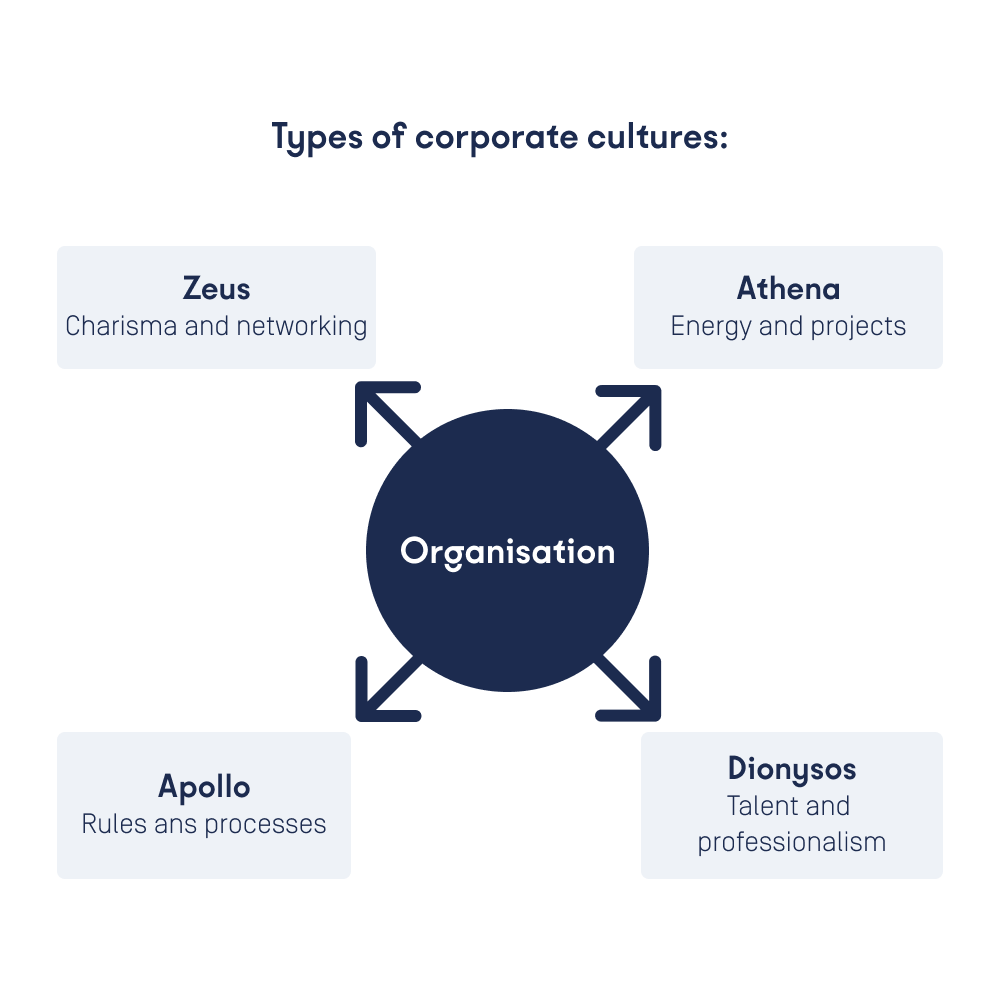Comment forger une culture d'entreprise ?
Step 1: Define the company's purpose
The purpose is the ideological foundation of a company's culture. It is important because it defines why your business was created.
For example, at Work With Island, our purpose is to provide a quiet and confidential space for employees when they need it.
Your purpose should answer the questions 'why' and 'how'.
It is important to determine the essence of your company's existence before establishing its values.
Step 2: Collect and formalise shared values
A company's shared values are the sum of the individual values held by each employee. Emblematically, these cultures project positive or negative images to the outside world. Internal communication, cohesion and a positive atmosphere should be the hallmarks of your company's culture. By asking each employee to articulate their values, you can identify what the team has in common. Always consider new recruits who are looking for a motivating work environment.
Step 3: Build a universe around the company's values
A value that is rarely practised is a value that doesn't exist. To be applied on a daily basis, a value must have a rich and comprehensive universe. By listing desired and sanctioned behaviours, you help to create this universe. Feel free to illustrate them, add keywords and motivate your people with action-oriented phrases. If necessary, organise reminder and sharing sessions to reinforce these values.
Step 4: Encourage individual effort
Addressing individual day-to-day behaviours is critical to strengthening the culture. By dedicating focused time, a team can provide feedback on individual efforts. Emphasise the positive aspects of upholding the values while identifying areas for improvement. These collective and individual sessions also provide an opportunity to assess each team member's feelings and alignment with the company's values.
Step 5: Embed individual values in your team
Sharing is a key element of culture. A cohesive culture is the result of management practices, internal communication and ongoing evaluation. By sharing your personal values with your organisation, you will connect with colleagues who share those values. Build a team that shares a common vision to reduce conflict while promoting diversity and versatility. This encourages the sharing of ideas and processes, enriching the entire organisation.
Step 6: Project the culture outwards
Externalising your company's values is crucial to its image and visibility. Communicate your values to customers to stand out from the competition. By asserting your uniqueness from the moment you acquire a customer, you anticipate the sale and the entire customer lifecycle. This visibility differentiates you not only to clients, but also to potential candidates. Projecting your culture outwards is the best way to attract profiles that match your values.
Step 7: Make regular updates
Regularly reviewing the culture with new recruits ensures their commitment to the common project. This ongoing process ensures alignment and understanding among all team members. Consistently reaffirming your values will enable your team to remain autonomous while respecting previous decisions. Refine the introspective work of the team and each individual to strengthen cohesion and commitment.
4 types of corporate culture

The Dyonisos culture
In this type of culture, all employees are placed on the same level on the value scale. The aim is to promote long-term cohesion and allow each member to express themselves in order to achieve their goals. Without a specific organisation, everyone is free to manage their work according to their character and preferred methods. Consider this culture as a liberation of the creativity of each employee to develop the company. However, the manager plays a crucial role in ensuring internal cohesion, with team building as the preferred solution. It can be compared to a family hierarchy.
The Athena culture
The "Athena" culture is an organisational culture found in many companies, especially start-ups. By embracing challenges, this culture emphasises innovation, creativity and flexibility. With a long-term vision, it ensures that teams are constantly motivated by different projects. Unleash your creativity and innovate. It's a double-edged culture, however, as the goals are often very high, which can lead to frustration or disappointment in the event of failure.
The Apollon culture
This culture symbolises the desire for structure within teams. Organised and dedicated to performance and customer service, it adapts to specific industries with the aim of outperforming the competition. Be a leader in your sector and be rational. Freedom has no place here; everything must be perfectly organised and planned, with teams strictly adhering to established rules.
The Zeus culture
It perfectly symbolises the hierarchical corporate culture. Well defined, each employee must stay in his or her designated role, with clear responsibilities for decision-makers and executors within each department. A major benefit of this culture is clarity: everyone knows their place and their mission. However, this organisational structure also has its disadvantages: freedom is limited and creativity can be stifled.
En résumé
There's no such thing as a company with a single type of culture. It's often a mixture of different management styles, applied on a case-by-case or team-by-team basis. However, it's important to focus on a few key values that help to automate day-to-day processes and recruitment efforts.





